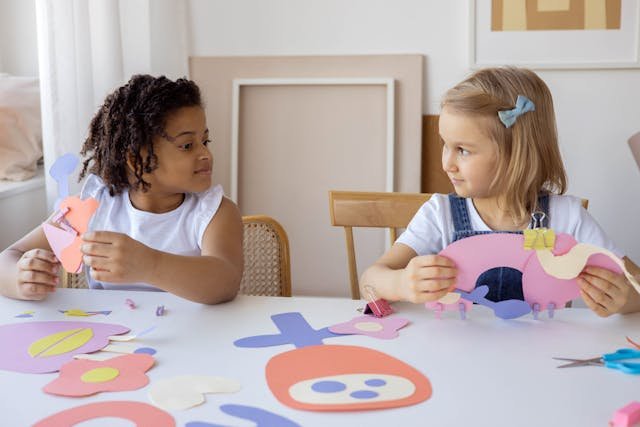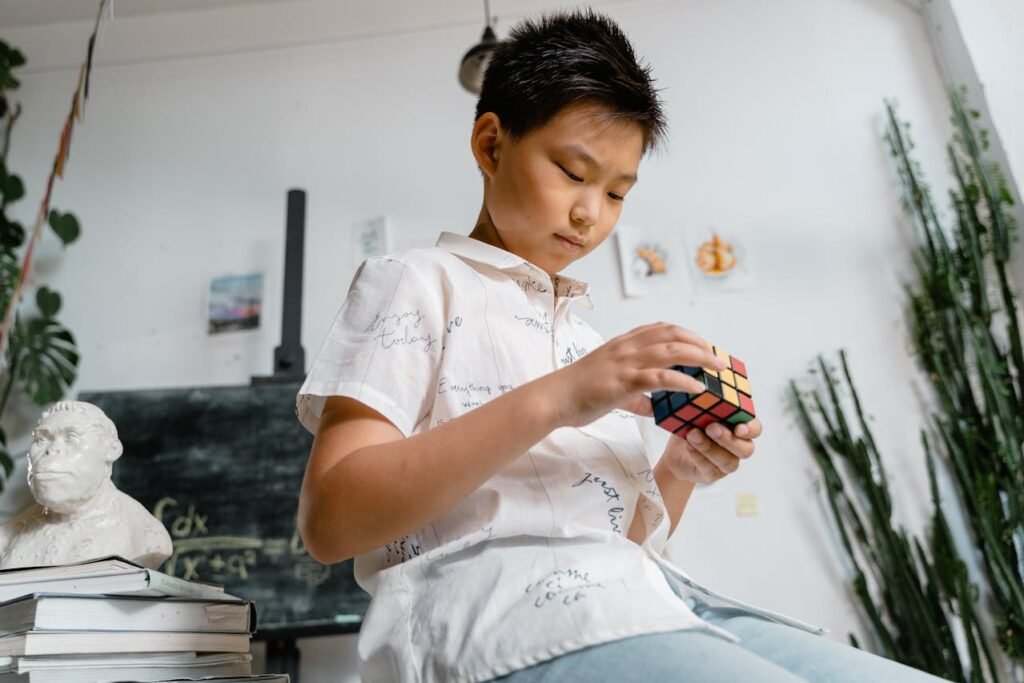Children grow in many ways — they get taller, stronger, and more independent with every passing month. Parents often notice the first steps, the first words, or the first time their child rides a bike. But there’s another kind of growth that isn’t always as easy to see: cognitive development.
This is the growth of the brain. It’s how children learn to think, remember, solve problems, and understand the world. These changes don’t happen all at once. They arrive in gentle stages, like stepping stones across a river. Each step — each milestone — shows that the brain is building new skills.
Knowing these milestones can help parents feel more confident. It helps them celebrate progress and also notice if their child needs extra support. At Debsie, we see every day how powerful it is when parents understand what to look for. Because when you notice the small signs of brain growth, you can guide your child with patience, joy, and the right kind of encouragement.
The First Steps of Thinking: Infancy to Toddlerhood
The earliest years of life are a time of breathtaking growth. From birth to about age three, the brain develops more than it will at any other stage. A newborn’s mind may seem quiet at first, but in reality, billions of brain connections are forming every second. These connections lay the foundation for memory, attention, problem-solving, and communication.
Parents often focus on physical growth in these years — the first crawl, the first walk, the first teeth. But cognitive milestones are happening at the same time. These are the mental “firsts” that show your child’s brain is working hard behind the scenes.
Discovering the World Through Senses
In the earliest months, babies explore mainly through sight, sound, touch, taste, and smell. They recognize familiar voices, follow moving objects with their eyes, and smile when they see a caregiver’s face. These simple actions show that their brain is learning to process and respond to the world.
As they grow into toddlers, they start to combine senses. For example, they shake a toy to see it move and hear it rattle at the same time. This is more than play — it’s the brain beginning to understand cause and effect.
Early Memory and Recognition
By the end of the first year, babies begin to remember things more clearly. They recognize faces, know familiar routines, and look for objects that are hidden. If you hide a toy under a blanket and your baby pulls the blanket away to find it, that’s an important milestone called object permanence. It shows your child understands that things exist even when they can’t see them.
This skill may sound simple, but it’s a huge step in learning how the world works. Later, this ability grows into remembering words, following directions, and solving problems.
Problem-Solving Through Play
Toddlers are natural problem-solvers. Give them a shape sorter, and they’ll try again and again until the triangle fits into the triangle hole. Hand them building blocks, and they’ll stack them to see how high they can go before falling. These moments are not just play. They are experiments, and each try strengthens the child’s ability to think through challenges.
Parents sometimes feel frustrated when toddlers make a mess while exploring. But that mess — the spilled water, the taken-apart toy, the crayon scribbles — is often the first sign of critical thinking at work.
Early Communication as a Thinking Skill
Cognitive milestones aren’t just about solving puzzles. They also show up in communication. When a baby starts pointing, babbling, or using a few words, they are doing more than expressing needs. They are practicing symbolic thinking — understanding that a sound or word can represent an object or idea.
By age two, most children begin to put words together in simple phrases like “more juice” or “go outside.” This is not only language growth. It’s a sign that their brain is learning to organize thoughts and connect them to the world.
The Preschool Years: Ages 3 to 5
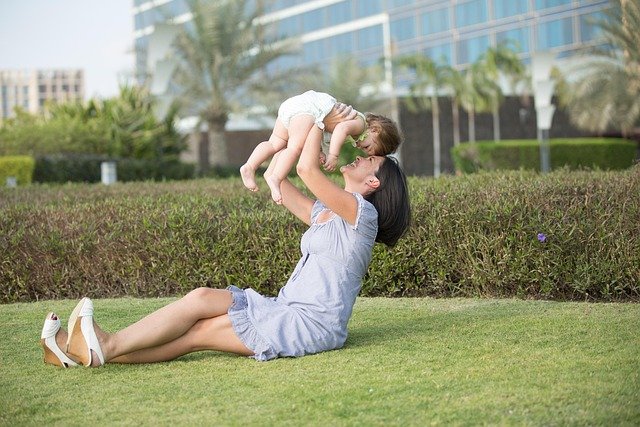
Between ages three and five, children’s brains take a giant leap forward. They move beyond simple memory and problem-solving into more complex ways of thinking. This is the stage where parents often say, “My child asks questions all day long!” That curiosity is a powerful sign of healthy cognitive growth.
During these years, children begin to think more deeply, imagine new possibilities, and understand simple logic. Their brains are learning to organize thoughts, connect ideas, and make sense of the world in brand-new ways.
Bursting Curiosity and Endless Questions
One of the clearest milestones in this stage is the rise of constant questions. “Why is the sky blue?” “Where does the sun go at night?” “What happens if I mix these colors?”
These questions may feel overwhelming at times, but they show that your child’s brain is not just absorbing information — it’s actively searching for explanations. Their mind is learning how to build cause-and-effect chains, and their questions are the tools they use to do it.
Imagination Comes to Life
Around age three, imagination blossoms. Children begin to create stories with dolls, cars, or even everyday objects. A spoon becomes a rocket ship, a box becomes a castle. This pretend play is more than fun. It’s a powerful milestone in cognitive growth.
Pretend play shows that children can think symbolically — they can use one object to represent another, or one idea to stand in for something else. Later in life, this same skill helps them understand symbols in math, words in reading, and concepts in science.
Early Problem-Solving With Rules and Logic
In the preschool years, children start to understand basic rules and use them to solve problems. For example, they know that if a block tower keeps falling, they need a bigger base. They begin to sort objects by color, size, or shape. They can follow two- or three-step directions like, “Pick up your shoes, put them in the closet, then wash your hands.”
This growth in logical thinking shows that the brain is getting better at planning and sequencing. These are the early building blocks of executive function — the mental skills that help older children focus, organize, and finish tasks.
Expanding Memory and Attention
Preschoolers also show big growth in memory. They can remember short songs, retell parts of a story, or recall details from a trip to the park. Their attention span also increases, allowing them to stay with a game or task for longer periods.
Of course, they still get distracted easily — that’s natural at this stage. But the ability to focus for even ten or fifteen minutes on a puzzle, drawing, or story is a major milestone compared to toddlerhood.
Language Becomes a Thinking Tool
By ages four and five, children use language not just to ask for things, but to think out loud. You may hear your child narrate their play: “Now the car goes here… oh no, it fell… I’ll fix it.” This “self-talk” is actually a form of problem-solving. It shows that they’re learning to guide their own actions with words, which will later become silent inner thinking.
The Early School Years: Ages 6 to 8
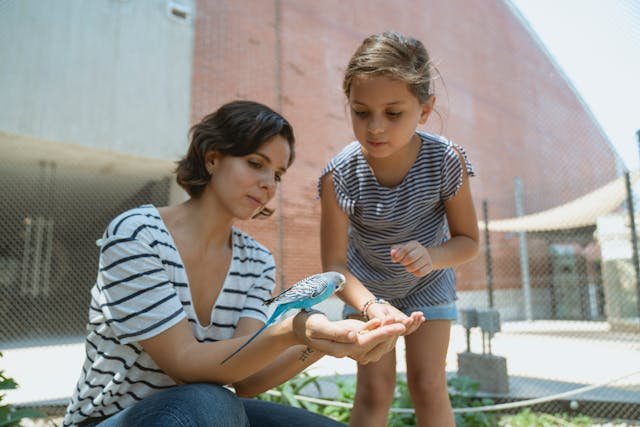
When children begin formal schooling, their brains shift into a new stage of growth. They move from playful exploration to structured learning. Their memory sharpens, their logic deepens, and their ability to focus improves. This is also the stage when they begin to understand responsibility and how effort leads to results.
Parents often notice that children at this age want to “figure things out” on their own. They take pride in solving puzzles, reading stories, or finishing assignments without constant help. These milestones show that their brains are developing independence in thinking.
Clearer, More Organized Thinking
By age six, children can hold several ideas in their minds at once. For example, they can follow instructions like, “Write your name at the top of the page, then draw three shapes, and finally color them.” They are no longer just reacting. They’re organizing tasks in order.
This skill grows stronger as they practice in school. By age eight, many children can solve multi-step math problems, plan out simple writing assignments, and begin to grasp more abstract ideas, like fairness and rules.
Expanding Memory Skills
Memory takes a huge leap forward in these years. Children can now remember facts from lessons, recall rules for games, and retell entire stories with more detail. They can also begin to memorize things intentionally, such as spelling words or multiplication tables.
This kind of deliberate memory is different from the natural recall of preschool years. It shows that the brain is learning how to study, practice, and store knowledge for later use.
Growing Focus and Self-Control
Children between six and eight can focus for longer stretches of time, especially when they’re interested in the task. They can sit through a full class lesson, complete a worksheet, or listen to a chapter read aloud.
They’re also learning self-control — the ability to wait their turn, raise their hand before speaking, or stay calm when things don’t go their way. These are big cognitive milestones because they show the brain is strengthening its “braking system,” which is essential for school success.
Beginning to Think Logically About the World
Another milestone in these years is the ability to apply logic to real-life situations. A child may understand that if it’s raining, the ground will be wet. They can group objects by multiple traits, like “these are red and round” or “these are small and wooden.”
This stage is often called the concrete operations stage — children can think logically, but mainly about things they can see and touch. Abstract thinking (like imagining “what if” scenarios) will come later.
The Role of Language in Learning
Language skills continue to expand. Children at this age can explain their thoughts more clearly, describe events in order, and ask deeper questions. Their conversations become more detailed, showing that they can organize and share complex ideas.
Reading also becomes a core tool for thinking. Instead of just learning to read, they begin to read to learn — using books to explore new information and expand their knowledge.
The Later School Years: Ages 9 to 12

Between the ages of nine and twelve, children’s minds start to stretch far beyond simple tasks. They begin to ask bigger questions, see connections across subjects, and understand perspectives beyond their own. This is the stage where they slowly start to think less like young children and more like young adults.
Parents often notice that children at this age crave independence. They want to make more of their own choices, manage their schoolwork, and even argue their point of view. All of this is part of normal cognitive growth. Their brains are preparing for the complex challenges of adolescence.
Longer Attention and Sharper Focus
By this stage, most children can stay focused for long periods, especially if they are motivated. They can complete multi-step projects that take days or weeks, such as a science fair experiment or a history report.
This growth in attention span is a major milestone. It means that their brains are better at managing distractions, holding goals in mind, and pushing through even when the task is challenging. These are the early signs of executive function strengthening — the brain’s ability to plan, manage time, and stay organized.
More Advanced Problem-Solving
Children between nine and twelve become more skilled at solving problems that require reasoning. They can weigh different options, test possible solutions, and make decisions based on evidence.
For example, if their tower of blocks keeps falling, they don’t just try randomly. They begin to analyze: “The base is too small, so I need to make it wider.” This type of logical problem-solving shows that their brain is beginning to apply strategy, not just trial and error.
Understanding Multiple Perspectives
Another big milestone in these years is the ability to recognize that other people think differently. A child can now understand that two people might see the same event in different ways. They also begin to grasp fairness, justice, and rules in more sophisticated terms.
This skill is important socially, but also cognitively. It helps children debate ideas, write persuasive essays, and understand literature where characters have different points of view.
Memory and Learning Become More Strategic
Children at this age can use memory strategies on purpose. They may make flashcards, repeat information aloud, or create little tricks to remember facts. This shows that their memory is not just growing stronger, but also becoming more self-directed.
They can also manage larger amounts of information at once, which allows them to tackle more complex subjects in school, such as multi-step math problems, detailed history timelines, and science systems like ecosystems or the solar system.
Preparing for Abstract Thinking
While most thinking at this stage is still tied to concrete facts and examples, children are starting to dip into abstract thought. They may enjoy “what if” questions, explore moral dilemmas, or wonder about things that can’t be directly seen, like gravity or energy.
This early abstract thinking sets the stage for the next leap in adolescence, when the brain begins to handle truly complex and hypothetical ideas.
The Adolescent Years: Ages 13 to 18

Adolescence is a time of incredible change — not just physically and emotionally, but mentally as well. Between the ages of thirteen and eighteen, the brain undergoes a dramatic transformation. These years are often challenging for both parents and teens, but they are also full of opportunity.
This is the stage when children move from concrete ways of thinking into more abstract, logical, and critical thought. They begin to imagine the future, question ideas, and form their own beliefs. While younger children learn facts, teenagers begin to learn how to think about thinking itself.
Abstract Thinking Comes Into Focus
One of the biggest milestones of adolescence is the ability to think abstractly. Teens can now understand concepts like freedom, fairness, or love in deeper ways. They can imagine “what if” scenarios that go beyond their immediate reality.
For example, instead of just asking, “What happened in history?” a teenager might ask, “What would have happened if this leader made a different choice?” This type of thinking shows a huge leap in how their brain processes information.
Stronger Critical Thinking and Analysis
Teenagers begin to analyze ideas, not just accept them. They ask more challenging questions: “Does this rule make sense?” “Why do we believe this?” “What evidence supports this?”
This critical mindset can sometimes sound like arguing, but it’s actually a sign of growth. Teens are practicing how to weigh information, see flaws in reasoning, and build their own opinions. These skills will serve them in higher education, careers, and personal decision-making.
Developing Identity and Personal Beliefs
Another major cognitive milestone in adolescence is the development of personal identity. Teens start to ask, “Who am I?” “What do I believe?” and “Where do I fit in the world?”
These questions are not just emotional — they are cognitive. They require deep reflection, abstract thinking, and the ability to imagine future possibilities. This stage can be confusing, but it’s also a powerful step toward becoming independent, thoughtful adults.
More Advanced Executive Function
During adolescence, executive function skills — like planning, organization, and time management — continue to mature. Teens can now handle longer projects, balance multiple responsibilities, and make more independent choices.
That said, their brains are still developing. Many teens struggle with procrastination, forgetfulness, or risk-taking. This is normal. The brain’s prefrontal cortex (the part responsible for self-control and long-term planning) continues developing into the mid-20s. With guidance, practice, and patience, these skills grow stronger year by year.
Moral and Ethical Reasoning
Finally, teens move beyond simple ideas of right and wrong. They start to consider fairness, justice, and values in complex ways. They may debate moral dilemmas, challenge authority, or develop a strong sense of fairness. While this can sometimes cause tension at home, it shows that their brain is building the ability to think ethically and thoughtfully.
How Parents Can Support Cognitive Milestones

Cognitive growth doesn’t just happen on its own. Yes, the brain is wired to learn, but children need the right environment to thrive. Parents play one of the most powerful roles in shaping how well these milestones develop. Small, everyday actions can make a big difference in helping a child’s mind grow strong and steady.
Infancy and Toddlerhood: Building the First Foundations
In the earliest years, the most important thing parents can give is responsive interaction. Talking, singing, smiling, and playing peek-a-boo may look simple, but they’re actually building memory, attention, and trust.
Parents can also offer safe opportunities for exploration. Let your baby grab, taste, and bang objects (within reason). For toddlers, simple puzzles, blocks, and stacking games build problem-solving skills while giving them freedom to test ideas. Most importantly, celebrate curiosity. Every “uh-oh” moment is a chance for the brain to learn.
Preschool Years: Encouraging Curiosity and Imagination
From ages three to five, children’s questions explode. Parents can support this by answering patiently, asking follow-up questions, and encouraging pretend play. Storytelling, role-playing, and art projects give children the tools to use their imagination — and imagination is a direct path to stronger thinking skills.
At this stage, games with rules (like “Simon Says” or simple board games) also build attention and self-control. When kids learn to wait their turn, they’re practicing the same executive function skills they’ll need later in school.
Early School Years: Building Memory and Focus
As children enter school, parents can help by giving them tools to organize their growing responsibilities. Visual schedules, simple checklists, and consistent routines teach the brain how to plan and remember. Reading together is especially powerful at this age — it strengthens language, memory, and attention all at once.
Parents can also make learning active. Instead of just drilling math facts, use cooking to practice measuring. Instead of memorizing spelling words silently, have your child write them in sand or shout them out while clapping. Active learning keeps the brain more engaged.
Later School Years: Supporting Independence
Between ages nine and twelve, children crave independence. Parents can nurture this by giving choices: “Do you want to do homework before or after snack?” Allowing them to make decisions builds responsibility while still keeping structure.
At this stage, encourage long-term projects. A model, a report, or a craft that takes several days teaches persistence. Help guide them without taking over. When they get stuck, ask guiding questions like, “What do you think should come next?” rather than giving answers outright.
Adolescence: Guiding Without Controlling
The teenage years are often the trickiest for parents, but they’re also full of opportunity. Teens need space to think for themselves, question ideas, and make mistakes safely. Parents can support them by listening, discussing big topics, and respecting their growing independence.
At the same time, teens still need structure. Helping them set goals, break projects into steps, and manage their time strengthens executive function. Encourage them to reflect on their own thinking — for example, by asking, “How did you solve that problem?” or “What could you try differently next time?”
Above all, patience is key. The adolescent brain is still under construction. With steady guidance and encouragement, teens can grow into strong, independent thinkers.
How Debsie Supports Cognitive Growth at Every Stage
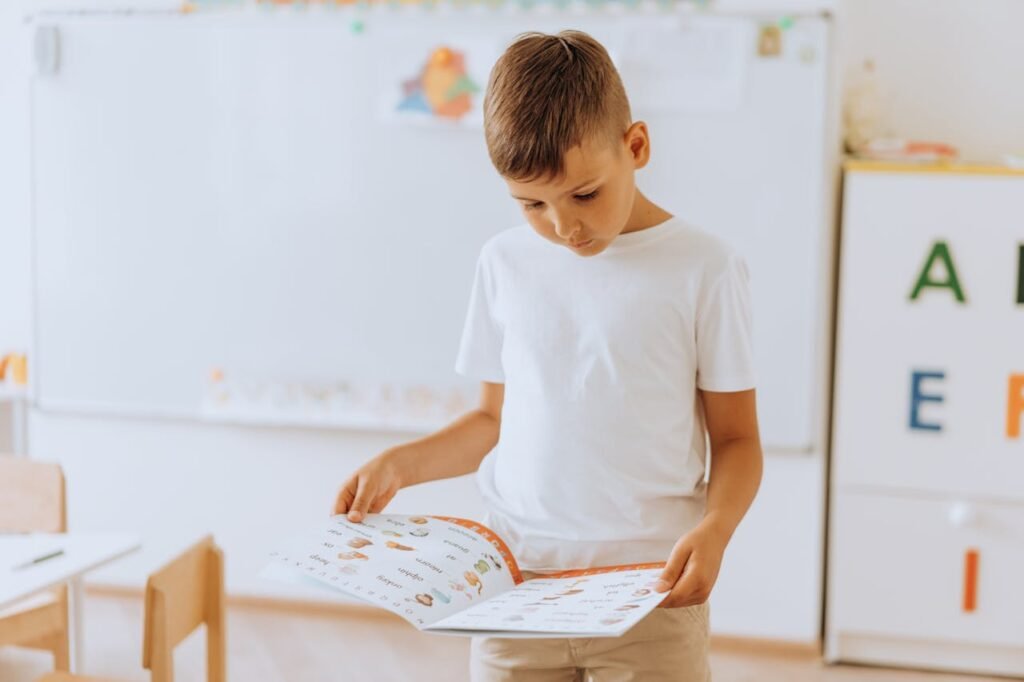
At Debsie, we believe learning is more than memorizing facts. It’s about building the brain — step by step, milestone by milestone. That’s why our programs are designed to support children’s cognitive development from the earliest years through adolescence.
Our partner teachers understand that every stage of growth comes with unique needs. A three-year-old exploring sounds and shapes learns differently from a thirteen-year-old debating fairness and justice. We meet children right where they are, guiding them with patience, creativity, and expertise.
For the Youngest Learners
In the early years, our lessons focus on play, curiosity, and sensory exploration. We help children recognize patterns, experiment with cause and effect, and use language to express their growing ideas. Activities are hands-on, simple, and joyful — laying strong foundations for later learning.
For Preschool and Early School Years
As children grow into preschoolers and early school learners, Debsie emphasizes imagination, curiosity, and step-by-step thinking. Our teachers encourage pretend play, problem-solving games, and creative projects that build focus and memory. We make reading, math, and science active and exciting, so learning feels natural instead of forced.
For Later School Years
At ages nine to twelve, our courses help students develop independence, persistence, and logical thinking. We introduce longer projects, group tasks, and opportunities to make choices. Children practice organizing their work, solving multi-step problems, and using memory strategies — all while staying engaged through fun, interactive lessons.
For Teenagers
Debsie supports teens by giving them space to think critically and explore abstract ideas. Our teachers encourage debate, reflection, and problem-solving that connects learning to real life. We also help teens strengthen executive function — planning, organization, and self-control — so they’re ready for the challenges of high school, college, and beyond.
Every step of the way, we celebrate progress. We remind children — and their parents — that milestones are not races. They are gentle markers of growth, and every child grows in their own rhythm.
Conclusion: Celebrating the Journey of the Mind
Cognitive milestones are the hidden victories of childhood. From a baby searching for a hidden toy to a teen debating the meaning of fairness, each step shows a mind growing stronger. These milestones don’t arrive overnight. They appear slowly, like blossoms opening one by one, each marking new growth and possibility.
As parents, noticing these moments helps us guide our children with more patience and joy. As teachers at Debsie, it’s our mission to nurture them — to give children the tools, encouragement, and experiences they need to reach their full potential.
Every question asked, every puzzle solved, every idea shared is proof that your child’s brain is expanding. And with the right support, they won’t just meet milestones — they’ll soar past them, ready for school, ready for life, ready for the future.
👉 Book a free trial class with Debsie today and see how we make every milestone a celebration of growth.
👉 Explore our full range of courses — from math and science to music, reading, and coding — designed to strengthen your child’s mind at every stage.
Because when we celebrate the small steps of the brain, we prepare children for the biggest steps of life.
Read Next:

